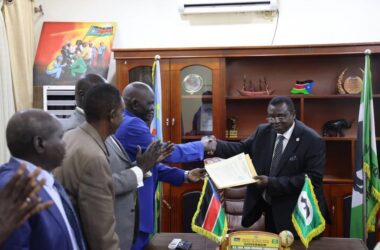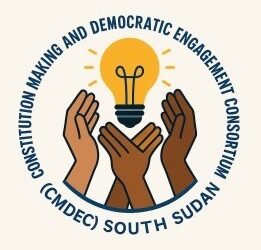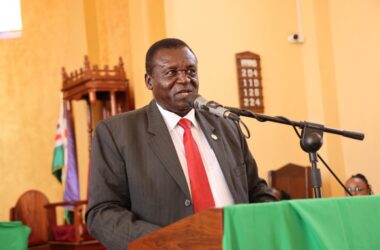By Staff Writer
A fresh wave of optimism sweeps over Bentiu in Unity State as unique dialogue on youth inclusion in decision-making processes was successfully concluded, last week.
This sparks hope for more inclusive governance and decision-making among relevant actors in the state.
Organized by the Active Citizen South Sudan (ACSS), the dialogue drew together 40 young participants, both males and females, from various youth associations in Bentiu.
The session aimed at narrowing the widening gap between state-level policymakers and the youthful population, an often overlooked but critical segment of society in national discourse.
Despite some visible youth presence in national institutions, South Sudan’s 2018 revitalized peace agreement has continued to fall short in ensuring the meaningful inclusion of young people in governance at the state and local levels.
Many blame stiff government structures and outdated bureaucratic systems for the systemic exclusion. This disconnect has weakened the capacity of youth to contribute to peacebuilding and policy implementation in formal governance structures. It has also debilitated the collective effort to empower and promote youth inclusion in key decision-making positions.
Speaking during the event in Bentiu, Gai Makiew Gai, the project coordinator for the organization believes the time is ripe for change as he underlined the strategic importance of the dialogues.
“Our goal is to raise awareness among youth about their role in nation-building. Many do not understand how vital they are in both economic development and political discourse. I am happy that Bentiu is now on board,” he explained.
“Youth must realize that they are not just participants but key drivers of South Sudan’s future. That’s why we are supporting platforms where they can connect, speak out, and shape national priorities,” Gai added.
The dialogue series was supported by the Norwegian People’s Aid (NPA) and hosted in Bentiu town. The move was part of a broader drive by a civil society group to pressure stakeholders – local and state- to integrate youth voices into political structures meaningfully.
Participants discussed forming a Bentiu-based youth advocacy platform to serve as a pipeline into higher-level decision-making bodies.
Bentiu may still be reeling from years of instability, but with its youth now finding their voice and space, the seeds of participatory governance are being sown with one dialogue at a time.
“This is the dawn of a new era for Bentiu,” said Makiew. “And it begins with young people taking charge of their future.”
Wichar Duouth, a youth representative at County Youth Union, said, “the youth of this country need to open up their mind by participating in critical public and private institutions for them to be able to influence the decision-making process at different levels of governance”
“Right now, the only institution actively recruiting young people is the Ministry of Defense – not because they value our leadership potential, but because we are used to protect the interests of others. Meanwhile, our voices are missing in the spaces where decisions about our future are being made.”
In his words, there was a growing frustration among young people who feel politically sidelined, even if they make up the majority of the population. However, the recent dialogue in Bentiu has breathed new life into their aspirations.
Mary Turoal, another passionate youth advocate, emphasized the need for structural reform within government institutions and urged them to employ youth representatives as heads of some institutions, not as secretaries or office clerks.
“It’s not enough to hire young people as office clerks or messengers,” she reiterated.
“We want youth to lead institutions, to sit at the decision-making tables, and to innovate solutions that matter to our communities. Creativity and capability must be recognized if we are to move this country forward,”
As the event concluded, the attendees left with a renewed sense of purpose and a collective commitment to engage more actively in community and state affairs.




